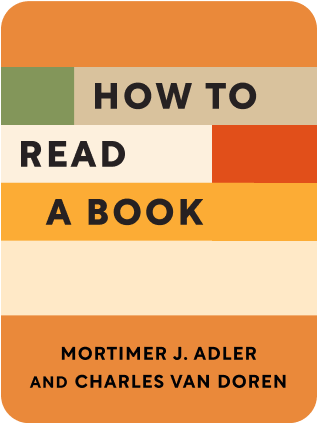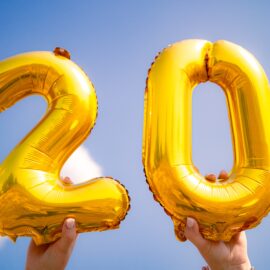

This article is an excerpt from the Shortform book guide to "How to Read a Book" by Mortimer J. Adler and Charles van Doren. Shortform has the world's best summaries and analyses of books you should be reading.
Like this article? Sign up for a free trial here .
What are the four components of analytical reading? What is the goal of reading a book analytically?
Mortimer Adler’s How to Read a Book describes analytical reading as the third level of reading. At this level, the aim is to understand to book and its background as much as possible in an unlimited amount of time.
Keep reading to learn about the four components of analytical reading.
The Third Level of Reading
The bulk of the book How to Read a Book by Mortimer Adler is about four levels of reading, each increasing in difficulty and complexity. Here they are at a high level:
- Elementary
- This is pure mechanical reading of text and comprehension of what the symbols literally mean.
- This is where most remedial courses aim, and the extent to which reading is taught in school.
- Inspectional
- This is a skimming of the book to understand its main points and its structure. It aims to gain the best understanding of the book in a limited time.
- This is achieved by reading the table of contents, index, and key summaries of major chapters.
- Analytical
- This aims to gain the best understanding of the book in unlimited time.
- Not only should you aim to understand what is being said, you should develop a personal opinion about its validity.
- This isn’t necessary if your goal is simply information or entertainment.
- Syntopical
- This aims to compare books and authors to one another, to model dialogues between authors that may not be in any one of the books.
This article will be exploring analytical reading in further detail.
Analytical Reading
The aim of analytical reading is to gain the best understanding of the book in unlimited time.
Not only should you aim to understand what is being said, you should develop a personal opinion about its validity.
This isn’t necessary for every book, and would be a waste of time for lower quality books. If your goal with a book is simply information or entertainment, then you don’t need to do as thorough of a job.
Analytical Reading consists of four components:
- Understand the author – her intentions, problems, and goals.
- Understand what the book says, through its logical arguments.
- Use external resources, only after you struggle through it yourself first.
- After you understand a book, criticize a book from your own viewpoint, finding areas you agree and disagree with (we will be discussing how to criticize a book in a separate article).
Understand the Author
Discover the author’s intention.
- Find out what the author’s problems were.
- What are the main questions the book tries to answer?
- Which questions are primary and which secondary?
Different categories of books have different typical questions they try to answer.
Typical questions on theoretical topics include: Does something exist? What kind of thing is it? What caused it to exist? Under what conditions can it exist? Why does it exist? What are the consequences of its existence? What are its characteristic properties? What are its relations to other things of a similar sort, or a different sort? How does it behave?
Typical questions on practical topics include: What ends should be sought? What means should be chosen to a given end? What things must one do to gain a certain objective, and in what order? Under these conditions, what is the right thing to do, and the wrong thing? Under what conditions would it be better to do this rather than that?
Find What the Book Says
Here you comprehend what the book is actually saying, and how the author answers her questions.
Well-written books guide the reader to comprehend their arguments using signposts, such as keywords and important sentences.
Keywords
Keywords are meaningful words or phrases that are used often and convey a wealth of information. Understand the keywords of the author, and what is meant by them.
- The same word can mean different things to different authors. Different words can mean the same thing for the same author.
- Find the meaning of the word through context.
- Clues that a word is important:
- The author quarrels with other writers about it.
- You struggle to understand it.
Most Important Sentences
Find the author’s leading propositions in her most important sentences.
The important sentences are the ones that express the judgments on which the argument rests.
How to find them
- Special sentences may be formatted stylistically or set apart.
- The important words are often contained in the important sentences.
- Don’t pause at the sentences that interest you – pause at the ones that puzzle you.
Unpack complicated sentences to find all the propositions the author is making.
State the proposition in your own words – this is the best way to verify that you understand it.
- If you can’t do this, the author has merely transferred words to you, not knowledge.
- Being unable to do this may make you confuse restatements of the proposition for distinct propositions, mch like “2 + 2 = 4” and “4 – 2 = 2” are really the same arithmetic relationship, but different restatements.
- This is helpful for syntopical reading – different authors say the same thing in different words, and this will help you see how they agree and disagree.
In addition, define an example or cite your own experience.
- “Nothing acts except what is actual.” can be restated as “your bank account doesn’t grow by merely possible windfalls.”
Sequences of Sentences
A good author develops arguments clearly in sequences of sentences. A good book usually summarizes itself as its arguments develop.
Until an author supports her propositions with reasons, they are merely opinions. The author’s argument explains that the conclusion follows from the premises. You must distinguish between genuine knowledge and mere opinion.
An orator’s great trick is to leave certain things unsaid that would be challenged if they were made explicit.
Find what things the orator says must be assumed, what can be proved, and what need not be proved because it is self-evident.
How to Use External Resources
As much as possible, you should struggle with the book independently on a first pass. This will help you see the forest for the trees, rather than getting mired in minutiae like looking up words you don’t know.
When you use an external resource, understand 1) what you hope to get from consulting it, 2) the limitations of the resource.
Here is how to use external resources:
- Dictionary
- Dictionaries contain the commonly accepted definitions of words and their transformation throughout time.
- The author, however, may use words to mean different things, which is why you must understand terms from the context of the book.
- Use it only for the most important words that are critical for understanding.
- Encyclopedia
- These contain facts, and not arguments on subjective questions (“what makes man happy?”), other than what people have said about the subject. It also contains no imaginative literature.
- Use it resolve disagreements about facts.
- Summaries/abstracts
- Use these to recover your knowledge about the book after you’ve read it. Do not use these as a substitute for reading the book yourself. You’ll develop a bad habit of using these as a crutch, and you’ll get lost understanding a book without a summary.
- Note that many of these have incorrect interpretations or incomplete treatments.
- Ideally you’ve written your own summaries yourself, and you can refer to them when you return to a book.
- Exception: use them in syntopical reading to know if a work will be relevant to your project.
- Commentaries/reviews
- It’s best to avoid these until after your read-through. Otherwise you’ll start the book biased and focus on things that support the commentary, rather than working to understand what the author is saying.

———End of Preview———
Like what you just read? Read the rest of the world's best book summary and analysis of Mortimer J. Adler and Charles van Doren's "How to Read a Book" at Shortform .
Here's what you'll find in our full How to Read a Book summary :
- How to be a better critic of what you read
- Why you should read a novel differently from a nonfiction book
- How to understand the crux of a book in just 15 minutes






